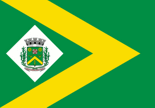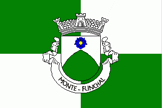![[Squadron Command Pennant]](../images/v/vxt-d496.gif)
Squadron Command Pennant, Belgium



Command Flags of Flag Officers of the Red, White and Blue 1702–1864, England/UK
2) See cross 1).
Please note regarding 1), that this term has been extended by the Editors due to its previously inappropriate/inaccurate usage.

Flag of the Minister of Military Affairs, Greece;
Flag of Quebec, Canada



Flag of Santa Bárbara d'Oeste, Brazil;
President's Standard, Italy;
House Flag of Linnhoff Schiffahrt, Germany
Notes
a) Such a charge is sometimes seen in Middle European heraldry/symbolism
(and occasionally elsewhere)
b) This is not an established term and has been
introduced by the Editors as no established alternative could be found.


Flag of Venice, Italy;
Ceremonial Flag/Gonfalon of
Knin, Croatia

Flag of Nunningen, Switzerland



Flag of The National Military Health Service,
RSA;
Badge of the Army Medical Corps, Canada;
Camp Flag of the Royal Army Medical Corps,
UK (Graham Bartram)
Please note that this should not be confused with the caduceus as referenced above, which has two serpents on a winged staff and is symbolic of medical institutions.
![[staff of Hermes example]](../images/v/vxt-d654.gif)
![[staff of Hermes example]](../images/v/vxt-d654a.gif)
Flag and Arms of Holwerd, Netherlands

Flag of Brisbane, Australia



The Stainless Banner, CSA 1863 in National Flag and Naval Ensign Format and as
Modified 1865
Please note that "stains" is an arbitrary abbreviation of the heraldic term staynande colours which is an alternative term for "abatements" or symbols of disgrace and is (in addition) almost certainly the origin of the later phrase a "stain on the (or his) escutcheon", so we strongly suggest that a suitable glossary or dictionary of heraldry be consulted before use – see abatements (also coward with its following note and escutcheon).



Flag of Monte, Portugal;
Flag of Ig, Slovenia;
Flag of Saga, Japan
Please note that botany draws a distinction between the stamen and seedpods of a rose or other flower, whereas English heraldry does not.
![[stand of colors]](../images/v/vxt-d309.gif)
A Stand of Six Colours, Colonel to the Third Captain,
English c1644
Notes
a) The above illustrations are loosely
based on a surviving colour from the English Civil War – that of a sixth captain
in Sir John Gell'S Regiment of Foot (Parliamentarian) 1643–44 – and upon one system
of differencing such colours known to have been in use at that time (see
‘venn’ (also ‘difference 1)’).
b) some Continental armies (most notably
those of France and Austria) often had a larger establishment of men per battalion than was
customary in the English service, so the number of colours carried could be commensurately greater.
2) See ‘heraldic standard 1)’ and ‘heraldic standard 2)’.
3) A rectangular flag used as a ceremonial unit flag by some cavalry and certain other military units (see also ‘sovereign's standard’). See supplemental note.
4) In obsolete usage, a pole with an emblem on the top around which soldiers could rally (see also ‘eagle 2)’ and ‘vexilloid 2)’).
5) As 4) above but fixed in place (rather than carried by a soldier), or alternatively transported in a large vehicle of its own (see also ‘carrocium’ and ‘gajardus’).
6) A figurative or poetic term for the symbol around which people rally.



Presidential Standard of India; Royal Standard of Norway;
Heraldic standard of the Master Gunner St James’ Park UK (Graham Bartram)
2) See ‘colour bearer’.

Flag of Zedelgem, Belgium

Royal Heraldic Standard c1450, England
Please note that standardum and standale are, respectively, the Latin and Italian words for standard, and that these and the derivations thereof were used more or less indiscriminately by medieval scribes.
![[flags featuring stars]](../images/v/vxt-d5296.gif)
![[flags featuring stars]](../images/v/vxt-d5297.gif)
![[flags featuring stars]](../images/v/vxt-d5298.gif)
Flag of the National Liberation Front, Kurdistan;
Chinese Republic Army Flag 1911–28;
Naval ensign of Morocco
Please note that in vexillology the difference between a multi-pointed star and a sun is often only a matter of official symbolism, however, a sun may sometimes be distinguished by having a ring around its central disk (Taiwan), a face (Argentina) or wavy points (British Columbia) – see also ‘active’, ‘inactive’, ‘rays 1)’, ‘ring 1)’ and ‘sun emblem’.
Please note that the US national anthem – from a poem by Francis Scott Key –
specifically refers to the flag as defined in 3) above, and which is preserved in the National Museum of American History,
Smithsonian Institution, Washington, DC.

National Flag of the US; National Flag of the US, 1795–1818

Starboard/Senior Officer Afloat Pennant in the NATO Code of Signals


Badge and Flag of the Governor General, Australia 1909–1936


Arms and Flag of Penhascoso, Portugal



Three Versions of the First National Flag, CSA 1861–1863

![[finial]](../images/v/vxt-d1229c.gif)


![[1912 US flag]](../images/v/vxt-d2591.gif)
![[1912 US flag]](../images/v/vxt-d510a.gif)
![[current US flag]](../images/v/vxt-d510.gif)




